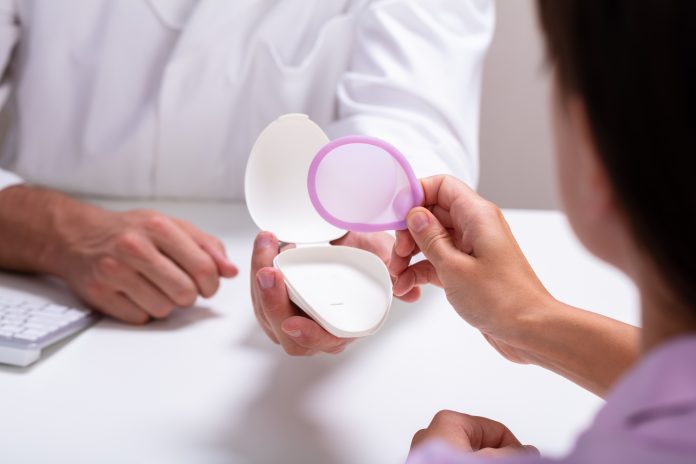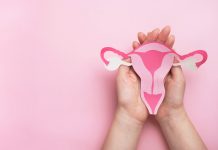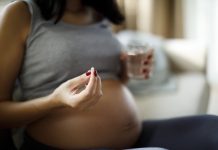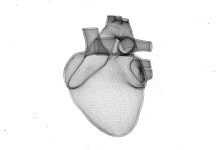Dr Deborah Lee, Dr Fox Online Pharmacy, considers the contraceptive options available for vegans and the benefits and risks it can have on women’s health
I love the vegan philosophy, don’t you? Vegans eat foods which have been produced without harming animals, and to try to follow a lifestyle which does not harm the planet. Both these get my vote. They follow a strict, plant-based diet – a diet which contains no meat, no fish, and no dairy products.
- Are there health benefits or risks from veganism for women?
- How does being vegan affect women’s healthcare choices?
- What are the options for vegan women regarding contraception, menopause, and HRT?
- What are the recommendations for vegan women in pregnancy and breastfeeding?
The rise in popularity of veganism in the UK
Veganism is growing fast. 600,000 UK residents are currently vegan (Vegan Society, 2019). and numbers of vegans quadrupled in 2015-2019. Vegans now make up 1.16% of the UK population, and estimates suggest that by 2025, this will have increased to 25%.
The vegan diet has much to commend it. Going vegan is one way to help to prevent climate change and ensure sustainable global food production. According to the recent 2019 EAT- Lancet Commission report, we all need to change our eating behaviour and eat less meat.
Plant-based diets offer a real solution to help our battle against climate change. If the population adopted a vegan diet, this would reduce greenhouse gas emissions by 60%. Switching to a vegetarian diet would reduce greenhouse gases by 47%. Even simply cutting meat consumption to < 50g per day, from >100g /day as it is at present, would reduce greenhouse gas emissions by 35%.
Are there health benefits of being vegan?
Veganism has much to commend it. Many authorities believe the vegan diet is ideal for the gut microbiome – this is the huge range of gut bacteria and genetic material in the digestive tract. A healthy gut microbiome is essential to maintain good bodily health and for long term survival.
Here are some impressive health benefits. Vegans have a 75% reduced risk of high blood pressure, a 47% – 78% risk reduction for type-2 diabetes, and a 14% overall risk reduction for cancer. As a group, vegans tend to have a healthier lifestyle, as they are less likely to smoke, drink less alcohol, and take more physical exercise. However, whether veganism truly increases longevity, has not yet been fully substantiated.
Are there any health risks associated with veganism?
Don’t assume being vegan is always a healthier option. Vegans tend to have a lower BMI and lower levels of cholesterol, which is generally a good thing. However, being underweight (BMI <18.5 kg/m2 ) can have a negative impact on health. Sometimes, a lower BMI may be due to higher levels of health and fitness, but a low BMI may also result from eating disorders, and/or malnutrition. Women who are underweight may stop ovulating and have fertility problems. A significantly low BMI also becomes more of a health risk with advancing age.
Vegans are more at risk of bone loss, osteoporosis, and fractures. A 2019 systematic review and meta-analysis, which included 275 studies of 37,145 participants, compared bone mineral density with omnivorous, vegetarian, and vegan diets, in adults aged between 25 to 80 years. The study found that in the over 50 age group, bone density was approximately 4% lower at the femoral neck and the lumbar spine, in vegetarians and vegans, compared to omnivores. Fracture risk was greater in vegans than in omnivores.
Reasons for this are unclear. It may be due to a lack of calcium or protein, in the vegan diet. Vegans are also at risk of vitamin B12 deficiency, which has a major impact on bone health.
Vegan women need special consideration regarding their weight and their bone health. They need to ensure adequate dietary intake of key nutrients such as vitamin B12, calcium, and vitamin D, and if these needs cannot be met in the diet, should take dietary supplements.
Diet and dietary supplements for vegans
-
Vitamin B12
B12 deficiency has serious medical consequences, for example, it causes anaemia, peripheral nerve damage, muscle weakness, and dementia.
Vegans are strongly advised to ensure they take in at least 3 mcg of B12 per day by eating foods fortified with B12. As B12 can only be absorbed little and often, eating small amounts several times a day is preferable. Don’t worry about overdoing it – it’s impossible to have too much B12 in the diet.
B12 is not found in plants. It’s found in red meat, poultry, and eggs – all things vegans do not eat. However, vegans can obtain B12 from foods such as vegan sausage mix, marmite, yeast extract, Vecon vegetable stock, soya or sunflower spread, and Alpro soya milk (Viva.org.uk).
Vegans may wish to take a B12 supplement, as either 10 mcg/day, or 2000 mcg/week
-
Calcium and vitamin D
Calcium – Adults aged 18-50 years are recommended to have 1000 mg calcium per day. In women aged 51 and over, and men over 70, calcium requirements are increased to 1200 mg/day.
Foods rich in calcium suitable for vegans include plant milks, yoghurt, tofu, kale, Bok Choi, almonds, and broccoli. If it’s not possible to eat enough of these foods, a supplement is recommended.
Vitamin D – Vitamin D is essential for the absorption of calcium from the gut. This is the reason calcium and vitamin D are often prescribed together.
Low levels of vitamin D are common, partly because vitamin D is made in the skin in response to sunlight. In the winter, when the days are short and dark, there is far less vitamin D production than in the summer. Although vitamin D is also taken in in the diet, many people do not consume enough.
Vitamin D is found in fortified soy milk, almond milk, mushrooms, and breakfast cereals. UK adults are currently recommended to take an additional 10 mcg vitamin D as a supplement every day. (VR.g)
Vegans will prefer vegan-friendly calcium and vitamin D products. For more information – see the NHS SPS has recommendations for calcium and vitamin D supplements in vegans.
Contraception and HRT options for vegan women
The Vegan Society defines veganism as –
“Veganism is a philosophy and way of living which seeks to exclude – as far as is possible and practicable – all forms of exploitation of, and cruelty to, animals for food, clothing, or any other purpose; and by extension promotes the development and use of animal-free alternatives for the benefits of animals, humans, and the environment. In dietary terms, it denotes the practice of dispensing with all products wholly or partly derived from animals.”
Because of their personal beliefs, some vegans may not find it acceptable to take certain types of medication. All medicines have been tested on animals, which is part of the study and testing process to ensure they are fit for human use. However, many vegans realise their health must come first and will take medicines if necessary, however they prefer to avoid medicines containing specific excipients.
Excipients unsuitable for vegans
Excipients are substances found in medicines, other than the active ingredients. Some of these derive from animal sources, for example, these may be caking agents, colourings, preservatives, or other products designed to facilitate absorption, or act as a propellant for inhalation.
The Vegan Society recommends that excipients should be avoided ‘as far as is practicable and possible.’ Vegans are more likely to take their medication if they have had an active discussion about this with their care provider.
To find out which excipients are contained in a specific medicine, check the product license available online at https://www.medicines.org.uk/emc. However, it may be necessary to contact a manufacturer directly as they sometimes change excipients. A pharmacist may be able to help.
Common excipients derived from animals include –
- Gelatin – produced from cow and pig bone
- Cochineal – dye from crushed insects
- Lactose – produced from cow’s mils
- Lanolin – produced from sheep’s wool
- Magnesium stearate – produced from beef fat
Contraceptive options for vegans
One of the main issues for female vegans is that many types of contraception, including all currently available contraceptive pills, contain lactose. This may be acceptable to some vegans, as the clinical benefits from taking oral contraception may override their personal beliefs, however, some vegans will not find this acceptable and will want an alternative solution.
When helping a vegan woman choose a method of contraception there are 3 main things to consider –
- Which contraceptives are lactose-free?
- What excipients are in other forms of contraception?
- Which are the most natural forms of contraception?
Lactose-free contraceptives are listed below –
- Barrier methods – male and female condoms, cap, and diaphragms
- Copper Intrauterine devices (IUDs) – all currently available devices
- Progesterone-releasing Intrauterine Systems – Mirena, Kyleena, Levosert, and Jaydess
- Injectable contraceptives – Depo-Provera, Noristerat, and Sayana Press
- Contraceptive patch – Evra
- Progesterone subdermal implant – Nexplanon
- Vaginal ring – NuvaRing and SyreniRing
Excipients in other forms of contraception
Latex contains casein which derives from dairy products, so latex-free condoms will be preferable.
Latex-free diaphragms and caps can be obtained. Cay and Milex are recommended silicone diaphragms. An alternative is the cervical cap – FemCap. These can be used with a vegan-friendly spermicide, such as Caya gel – a vegan, non-toxic spermicide.
Natural forms of contraception
Vegan women may be more interested in Natural Family Planning (NPF), which is the most natural form of fertility control, or in sterilisation.
- NFP has much to offer, however, it’s only suitable for women with regular menstrual cycles, and who could cope with an unplanned pregnancy. Although some women report excellent contraception from NFP, this is highly user-dependant, and failure rates in the first year of use have been quoted at 24%.
- Sterilisation, for both men and women, must be regarded as irreversible. This is highly effective with failure rates at 1 year of 0.5% for women and 0.1% for men. If the female partner is considering sterilisation, always consider if the male partner would be better being sterilised instead, as the failure rate after vasectomy is so much lower.
Where to get advice about contraception?
Make an appointment to see your GP, or at the local Sexual Health Clinic.
Menopause, HRT, and vegans
All currently available oral HRT preparations contain lactose, except for the progesterone – utrogestan.
However, patches, gels, and the vaginal ring are lactose-free.
The intravaginal tablet Vagifem does contain lactose, but this is only in small quantities and is unlikely to cause symptoms in anyone with lactose intolerance.
Menopausal women are often advised to take a calcium and vitamin D supplement. The NHS Specialist Pharmacy Service (SPS) has published specific recommendations about Calcium and vitamin D products for vegans, available here.
As with any other medicines, always check for any excipients in the SPC of the product at https://www.medicines.org.uk/emc.
Where to get advice are menopause and HRT?
Make an appointment with your GP or visit the local Sexual Health Clinic. Some services run specialist menopause clinics and you can ask to be referred if necessary.
Pregnancy and breastfeeding
Diet in pregnancy is vitally important for both mother and baby. Whereas a vegan or vegetarian diet can be challenging in pregnancy, so long as adequate nutritional status is maintained, pregnancy outcomes are the same as women following an omnivorous diet. However, women do need to understand the importance of maintaining an adequate diet, before conception, throughout pregnancy, and while breastfeeding.
Vegan women in pregnancy are especially at risk of a deficiency in vitamin B12, vitamin D, calcium, zinc, iron, protein, essential fatty acids, and iodine.
The Vegan society recommendations for pregnancy and breastfeeding –
- Take folic acid supplements for at least 12 weeks prior to conception
- Eat iron-rich foods – such as lentils, chickpeas, beans, tofu, cashew nuts, chia seeds and fortified breakfast cereals.
- Eat calcium-rich foods – such as almond milk, orange juice, and tofu.
- Ensure an adequate daily intake of vitamin B12 – or take a supplement (see above)
- Take adequate iodine
- Take a vitamin D supplement 10 mcg/day (see above)
In all cases, discuss your vegan diet with your Obstetrician and midwife, and make sure you follow their advice about the need for any dietary supplements.
Final thoughts
We are what we eat, yet so often there is no time in a busy consultation with your doctor to discuss your diet. Special diets and dietary requirements are not often taught at medical school. It will probably be up to you to raise the issue of your veganism with the doctor and discuss the implications of this for your health. Your doctor will respect your views and help you make the right choices.
With the correct planning, you should be able to eat well and remain in good health on a vegan diet. Do make sure you know enough about the diet and are having sufficient amounts of vitamin B12, calcium and vitamin D.
If you need contraception, HRT, are planning a pregnancy, or are pregnant, or breastfeeding, be sure to make sure your doctor/ obstetric team are aware and can support you with the best advice.
More information
- British Nutrition Foundation – Healthy eating for vegans and vegetarians
- NHS – Specialist Pharmacy Service (SPS) – Excipients -what are the general considerations for vegan patients












Now that I’m older, I’m being conscious of my health especially now that many people are getting sick. This is such a helpful article on women’s contraceptive options when they are vegan and it is generally advised to focus on a vegan diet rich in vitamin B12, calcium, and vitamin D to stay healthy. It would also be helpful for a doctor to further give proper advice in these matters.
This page needs updates. The bone density study has been updated and a lot of HRT meds are made from horse or cow hormones. They suffer immensely for the production of them as well. Those are NOT vegan products.
My husband and I are both in our 50’s and just had a full panel blood test. Before becoming a vegan, I had to take iron, B-12, and vitamin D supplements. After 5 years of being animal protein/dairy free vegan diet, my B-12 was greater than >2000 pg/ml with normal being between 250-950, my vitamin D levels were 42 ng/ml which is in the optimal level, iron was 13.3 with 11.5-15.5 considered normal. I’ve also cut my thyroid medication in half because it seems to be getting better. I was also pre-diabetic taking 2000 mg of metformin daily. I am within normal levels now (glucose 87 mg/dl) and off all pre-diabetes medications. My cholesterol was considered high at 203 mg/dl, now it is 170 (normal). My calcium score was zero (I have to get this checked because of hormone replacement therapy). My husband is a meat eater and is deficient in vitamin D and B-12, has extremely high cholesterol at 223 mg/dl with medication, and a calcium score of over 500 putting him at risk for serious heart disease. Ironically, my protein levels were higher than his. Even with a side-by-side comparison, I cannot convince him to be vegan.